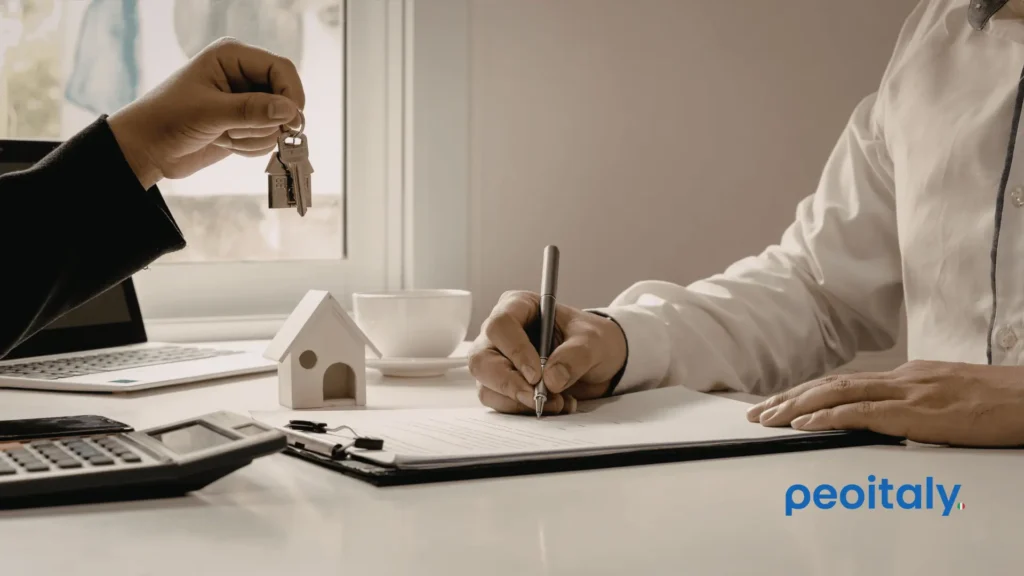The Blue Card Visa is an essential pathway for non-European highly skilled workers to gain employment in Italy. Recent changes to legislation in August 2024 have introduced more flexibility, making it possible for qualified professionals without a university degree to access this visa, provided they can demonstrate sufficient experience in their field.
In this article, we’ll explore the updated Blue Card process, the requirements for applicants, and the steps involved to ensure a smooth experience for both employers and employees.
What is the Blue Card Visa?
The Blue Card Visa is a work and residence permit designed for highly skilled workers coming to Italy from outside the European Union. It enables businesses to recruit global talent for positions that require specialised skills, helping to address skill shortages in key industries.
Before the recent legislation changes, Blue Card applicants were required to hold a valid university degree in addition to their experience. Now, professionals with significant industry experience—without formal higher education—are also eligible to apply.
Key Changes in Blue Card Legislation
The recent changes to the Blue Card process aim to simplify and widen access for non-European workers. Here’s what’s new:
- Eligibility for Non-Degree Holders:
Previously, applicants needed a university degree. Now, applicants can qualify if they demonstrate at least five years of professional experience in their field through employment contracts and pay slips. - Streamlined Document Requirements:
- For Degree Holders: A Declaration of Value (Dichiarazione di Valore) must be obtained from the Italian consulate in their country of residence.
- For Non-Degree Holders: They must provide proof of employment in the relevant industry, such as contracts and pay slips covering at least five years.
- Timeframes for Approval:
Although the new law was designed to expedite the visa process, in practice, applications still take up to 90 days to process.
Blue Card Application Process
The Blue Card visa process involves multiple steps, both for the employer and the employee. Below is a breakdown of the key stages:
- Agreement with the Client:
- The employer (e.g., PeoItaly) signs an upstream agreement with the client to initiate the process.
- Document Collection:
- Degree Holders:
They must obtain a Declaration of Value from their local Italian consulate, which involves providing original university degrees, transcripts, and exam programmes for verification. - Non-Degree Holders:
They must gather documentation such as employment contracts and pay slips demonstrating their professional experience.
- Degree Holders:
- Lodging the Application:
- The employer submits the application through the Italian immigration portal managed by the Ministry of Interior.
- Follow-Ups:
- Regular follow-ups are conducted with immigration authorities to check the application status and resolve any issues (e.g., missing documents).
- Approval (Nulla Osta):
- Once approved, the immigration office issues the nulla osta, which allows the worker to proceed with the visa process.
- Visa Issuance:
- The employee visits the local Italian consulate in their country of residence to obtain the visa.
- Final Steps in Italy:
- Upon arrival in Italy, the employee and the employer visit the local immigration office to finalise the work permit, allowing the individual to live and work legally in the country.
Detailed guidelines on the application process can be found on the Invest in Italy website, which provides resources on labour law and immigration procedures.
How Long Does the Process Take?
The Blue Card process generally takes up to 90 days from the time the application is submitted. While the new legislation aimed to shorten this timeline, employers and employees should still plan for a full three-month period.
Typical Timeline:
- Initial Preparation (agreements, document collection): 2–4 weeks.
- Application Processing: Up to 90 days.
- Post-Approval Steps (visa issuance, work permit finalisation): 2–3 weeks.
Employers are encouraged to follow up with immigration authorities regularly to identify and address any issues early in the process. For instance, missing documents or incorrect uploads can lead to delays if not rectified promptly.
Challenges in the Blue Card Process
Despite the recent improvements, some challenges remain:
- Declaration of Value:
For degree holders, obtaining this document can be time-consuming. Consulates often require a significant amount of paperwork, including translated and notarised documents. - Proof of Experience for Non-Degree Holders:
Non-degree applicants must provide detailed employment records, which can be difficult to obtain or verify in certain cases. - Delays in Processing:
While the process should theoretically take 90 days, it is not uncommon for additional delays to occur. Regular follow-ups with immigration authorities can help mitigate these issues.
Why Choose Local Expertise?
Navigating the Blue Card process requires a thorough understanding of Italian immigration laws and procedures. A local partner, such as PeoItaly, can help:
- Guide employees in obtaining the correct documents, whether it’s a Declaration of Value or proof of professional experience.
- Handle application submissions efficiently through the immigration portal.
- Follow up with immigration authorities regularly to prevent last-minute surprises.
Local expertise also ensures a smoother experience when dealing with Italy’s bureaucracy, from consulates abroad to immigration offices in Italy.
The updated Blue Card legislation provides new opportunities for employers in Italy to recruit highly skilled workers from outside Europe. By recognising professional experience alongside formal education, the new rules make it easier to tap into global talent.
However, the process remains complex, requiring careful planning and diligent follow-up to avoid delays. With timelines stretching up to 90 days, partnering with a local expert like PeoItaly can streamline the experience for both employers and employees.
Whether you’re hiring a degree holder or an experienced professional, understanding the requirements and following each step carefully will ensure a successful outcome.
Ready to expand into Italy? Contact Peoitaly today to see how we can help you achieve your goals.



